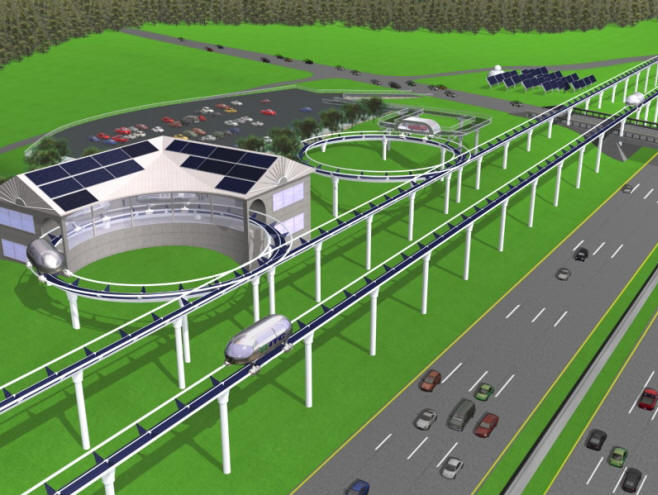http://www.hydrogensuperhighway.com/
Our mission is to mass produce the least expensive and most universal form of public conduit to move people via maglev technology, and simultaneously provide structural conduit for the distribution of electricity, potable water, liquid waste, fiber optics, hydrogen, oxygen, and where applicable, other liquid and vapor based fuels. By partnership with the State and Federal governments, we intend to expand our business to include an International Sales Organization to supply light rail systems and utility conduits to municipalities world wide.
In this regard, our aim is to provide a continuous revenue stream for municipal governments for the management of public works and the embellishment of parks and other public spaces along with the management of local public transportation services at all levels.
Our vision is this: To mass produce a unified public conduit system that can be installed anywhere at the lowest possible cost, the highest possible quality, with the greatest efficiency, built from the most resilient materials and is pollution free.